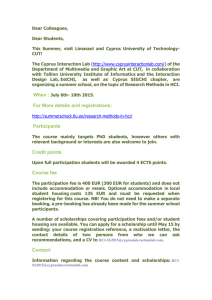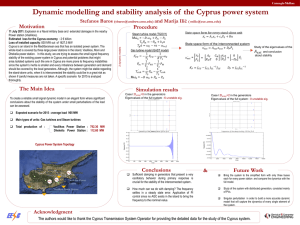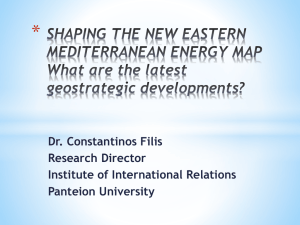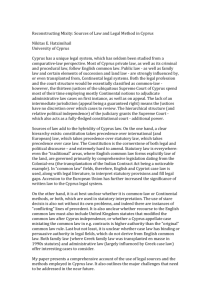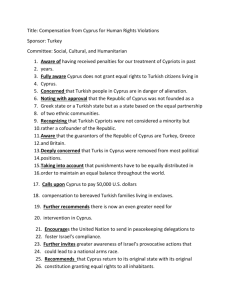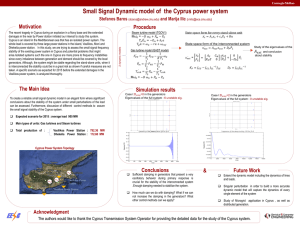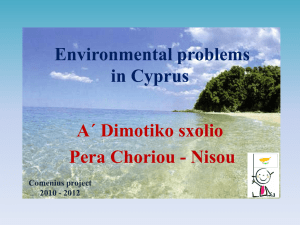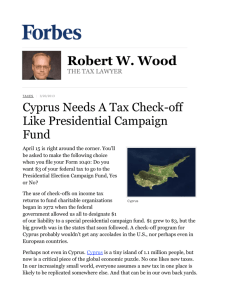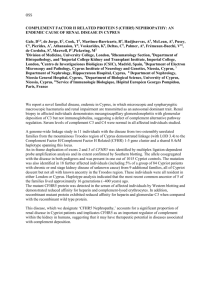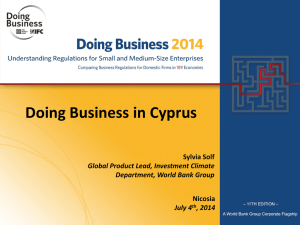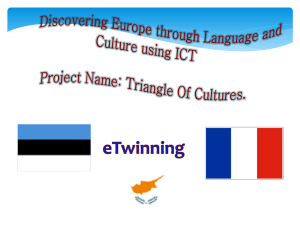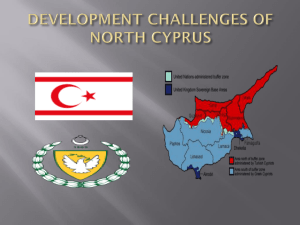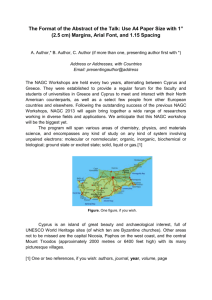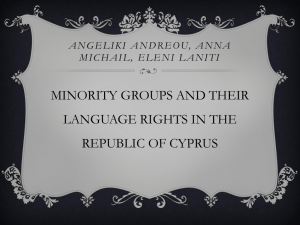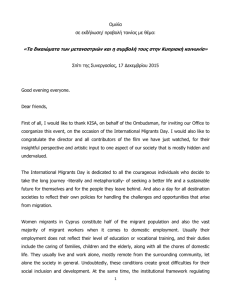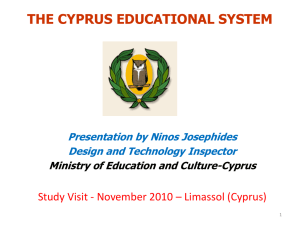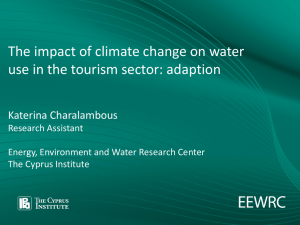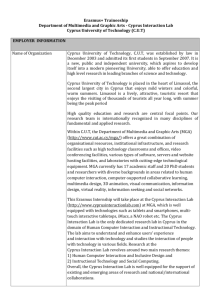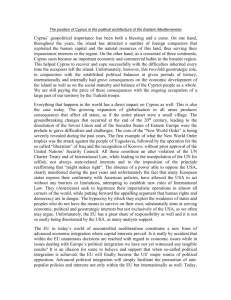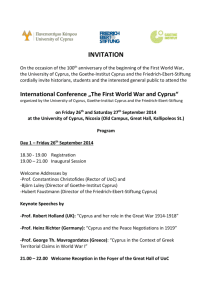Louiza Hadjivasiliou of the NGO Support Centre on the
advertisement
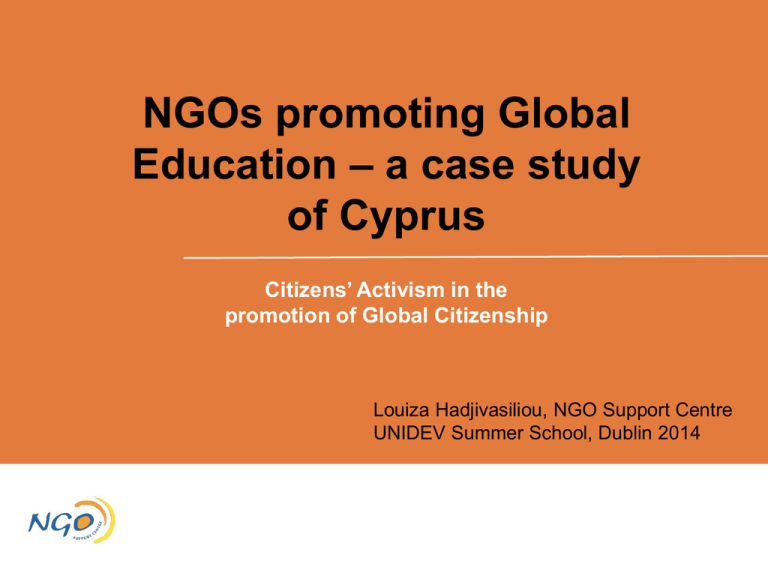
NGOs promoting Global Education – a case study of Cyprus Citizens’ Activism in the promotion of Global Citizenship Louiza Hadjivasiliou, NGO Support Centre UNIDEV Summer School, Dublin 2014 Presentation outline • Global Education: definition • National context: Cyprus • Development Co-operation & Global Education in Cyprus • 2004-2014: NGOs promoting Global Education • Current realities & citizens’ activism • Strengths & challenges • Suggested reading & useful links Global Education • Global Education & Development Education: terms often used interchangeably • North-South Centre of the Council of Europe: “Global Education is an education that opens people’s eyes and minds to the realities of the world, and awakens them to bring about a world of greater justice, equity and human rights for all. Global Education is understood to encompass Development Education, Human Rights Education, Education for Sustainability, Education for Peace and Conflict Prevention and Intercultural Education; being the global dimension of Education for Citizenship.” (The “Maastricht Global Education Declaration”, 2002) The context of Cyprus • Numbers: 9,251 sq; 1.1 million population • Key dates: 1960 independence; 1974 Turkish invasion; 2004 EU accession • Economy: one of the Eurozone’s smallest economies • March 2013: 10 bn-euro bank bailout – resolution of second largest bank & 'haircut' in uninsured deposits Cyprus(Aid): Development cooperation • Cyprus has not always been an aid donor country • 1994-2004: 1155 scholarships as part of the “Technical Assistance Scheme for Foreign Countries” • 2006: development projects through Delegated Cooperation – Silent Partnerships • ODA: from 0.09% to 0.23% to 0.11% • Development has never topped the foreign policy agenda Cyprus: Global Education • One of the founding members of the North-South Centre • Key stakeholder: Ministry of Education & Culture (Global Education Week, Inter-sectoral Committee on Global Education, Pedagogical Institute) • Pedagogical Institute: National Strategy on Environmental Education and Education for Sustainable Development • Other stakeholders: Teachers, universities, policy makers, CSOs NGOs promoting Global Education • • • • • • The main actors implementing Global Education projects/activities Activities include publications, events, campaigns Main source of funding: DEAR Call (EuropeAid – EC) Three 'groups' of NGOs: DEAR-funded, non-DEAR funded & humanitarian/charity Creation of NGDO Platform and CYINDEP (CONCORD & TRIALOG memberships) • http://www.youtube.com/watch?v=Jswfmw-ZbXQ • Key dates: 2012 EU Presidency, EYD2015 Current realities & citizens' activism • Newly-appointed Commissioner for NGOs & Voluntarism • New organisations are created eg. 'Politia' • Many citizen-driven initiatives and informal groups appear eg. 'Ellovos' • Active citizenship eg. First Cyprus Pride 2014, 'Let's Do it Cyprus' cleaning campaign, MYCYradio Strengths • • • • • Small society & young civil society Economic (& socio-political) crisis Individuals' interest & motivation Expertise within the CSO sector Range of fields: human rights, environment • NGO Law reform migration, Challenges • • • • • Small society & young civil society Economic (& socio-political) crisis Funding & sustainability; project-driven Lack of research opportunities National context in terms of policy-making & government support • Long-term citizens' engagement Suggested reading & useful links • unidev.info • deeep.org • 'A reflection on Global/Development Education in the context of Europe and Cyprus', Kerstin Wittig, NGO Support Centre • 'Journeys to Citizen Engagement: Action Research with Development Education Practitioners in Portugal, Cyprus and Greece', Amy Skinner and Sandra Oliveira, DEEEP

